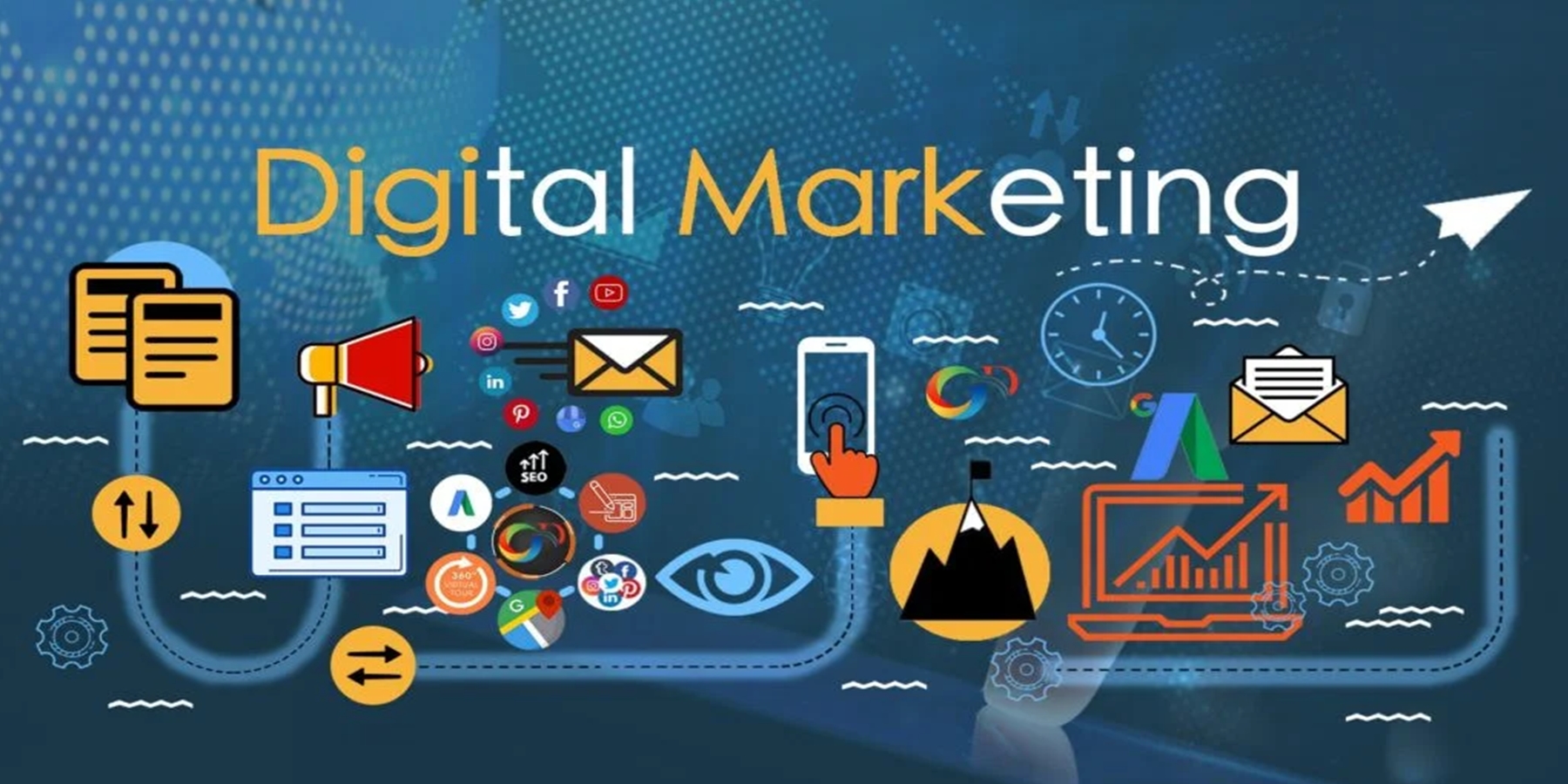What is Digital Marketing?
Digital marketing is a broad term that encompasses all marketing efforts that use electronic devices or the internet. It leverages digital channels such as search engines, social media, email, websites, and other online platforms to connect with current and prospective customers.
The goal of digital marketing is to reach and engage target audiences, build brand awareness, drive website traffic, generate leads, and ultimately, increase sales or conversions. Digital marketing strategies can include various tactics such as search engine optimization (SEO), content marketing, social media marketing, email marketing, pay-per-click (PPC) advertising, affiliate marketing, and more.
Digital Marketing has become indispensable in today's digital age, providing businesses with the tools, strategies, and opportunities to connect with their target audience, drive sales and conversions, and achieve their marketing objectives effectively and efficiently.
Why digital marketing is impotant?
- Reach: With the increasing number of internet users worldwide, digital marketing allows businesses to reach a vast audience across different demographics and geographic locations. This broader reach expands potential customer bases beyond traditional local markets.
- Cost-Effectiveness: Compared to traditional marketing channels like print, television, or radio advertising, digital marketing typically offers a lower cost per impression or conversion. This affordability makes it accessible to businesses of all sizes, including startups and small businesses.
- Targeting: Digital marketing platforms offer sophisticated targeting options that allow businesses to tailor their marketing messages to specific demographics, interests, behaviors, and stages of the customer journey. This precise targeting increases the efficiency and effectiveness of marketing campaigns.
- Measurability and Analytics: Digital marketing provides robust analytics tools that enable businesses to track and measure the performance of their marketing campaigns in real-time. Metrics such as website traffic, engagement, conversion rates, and return on investment (ROI) can be monitored and analyzed to optimize marketing strategies for better results.
- Flexibility and Adaptability: Digital marketing channels offer flexibility in terms of content creation, scheduling, and targeting, allowing businesses to quickly adjust their strategies based on market trends, consumer behavior, and campaign performance. This agility helps businesses stay competitive and responsive in dynamic markets.
- Brand Building and Awareness: Digital marketing enables businesses to build and reinforce their brand identity through consistent messaging, storytelling, and engagement across various online platforms. By increasing brand visibility and awareness, businesses can establish trust, credibility, and loyalty with their target audience.
- Engagement and Interactivity: Digital marketing channels facilitate two-way communication between businesses and customers, fostering engagement, interaction, and feedback. Social media, email marketing, and interactive content formats like quizzes or polls encourage audience participation and create memorable brand experiences.
- Globalization: Digital marketing transcends geographical boundaries, allowing businesses to expand their reach and tap into international markets without the need for physical presence or extensive infrastructure. This globalization opens up new growth opportunities and revenue streams for businesses seeking to scale globally.
